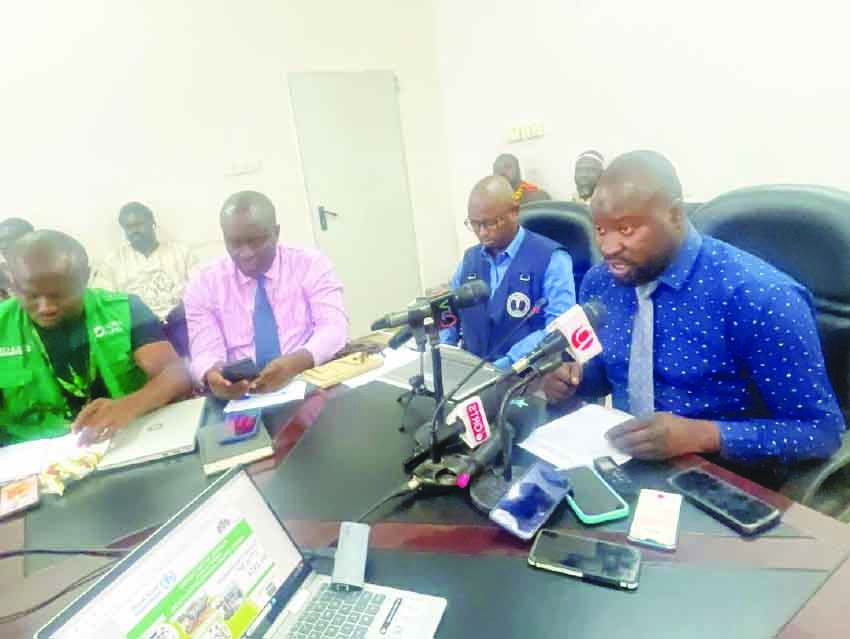By Kumba Leigh
The Ministry of Health, in collaboration with World Health Organisation (WHO), Africa Centre for Disease Control and Prevention and other partners have embarked a mass drug administration campaign against Schistosomiasis, targeting 600,000 individuals across 27 districts in the country. The campaign, which started on 17th May and to end on 26th May 2024, mainly targets pre-school aged children (2 years to 4 years and 11 months), school-aged children 5 to 14 years, and adults at-risk.
Schistosomiasis is a debilitating parasitic disease that continues to pose a severe threat to the health and productivity of the people particularly affecting children and those involved in occupations with high expo-sure to infested water.
Authorities say this mass drug administration is crucial step towards mitigating the impact of the disease and is aligned with targets set by the Global NTD roadmap 2021-2030, which aims to achieve the elimination as a public health problem for Schistosomiasis by 2030.
While briefing the media at the start of the campaign, Amadou Woury Jallow, Programme Coordinator, Dis-ease Control, Ministry of Health Epidemiology The Gambia, said their strategy involves a comprehensive ap-proach to reach and treat every eligible individual within the specific age groups. “This is geared towards pro-tecting the citizenry from early infection and preventing the onset of chronic conditions associated with schis-tosomiasis, reduce the disease prevalence and interrupt its transmission cycle”.
He said the MDA campaign will be conducted through a well-coordinated effort involving their dedicated healthcare workers, traditional leaders, and community volunteers. He informed that distribution points will be set up in schools, health centres, and other community gathering spots to ensure accessibility and con-venience for all targeted individuals.
Balla Jatta, Neglected Tropical Disease Focal Person, Ministry of Health warned that Schistosomiasis remains a critical health issue in The Gambia, disproportionately affecting children and adults exposed to infested wa-ters. He said by targeting these vulnerable groups with preventive measures and treatment, they are com-mitted to reducing the prevalence of the disease and improve the overall health and quality of life within communities.
Mr Jatta expressed appreciation to the WHO, saying they have been instrumental in making the campaign a success. He said through the Merck Praziquantel Donation Programme, facilitated by the Expanded Special Programme for the Elimination of Neglected Tropical Diseases (ESPEN) at WHO AFRO and the WHO Country Office, they were able to receive the necessary medicines to treat those at risk and WHO provided the essen-tial funding required to support the mass drug administration campaign.
For his part, WHO’s Representative, Dr Ifeanyi Udenweze, revealed that about 250 million people are affect-ed by NTDs globally and out of that, 60 percent burden is on the African continent in communities where ac-cess to healthcare services is limited.
He said healthcare workers have been trained to administer these drugs effectively and efficiently.
The WHO Rep assured the public that the drugs are safe and encourages the targeted groups to take the drugs.
Dr Pius Onongwe, Africa CDC, encouraged healthcare workers to embrace teamwork and effective coordina-tion while embarking on the Schistosomiasis campaign. He expressed Africa CDC’s concern about Schistoso-miasis and urged that people participate and ensure that the upcoming campaign is successful.






